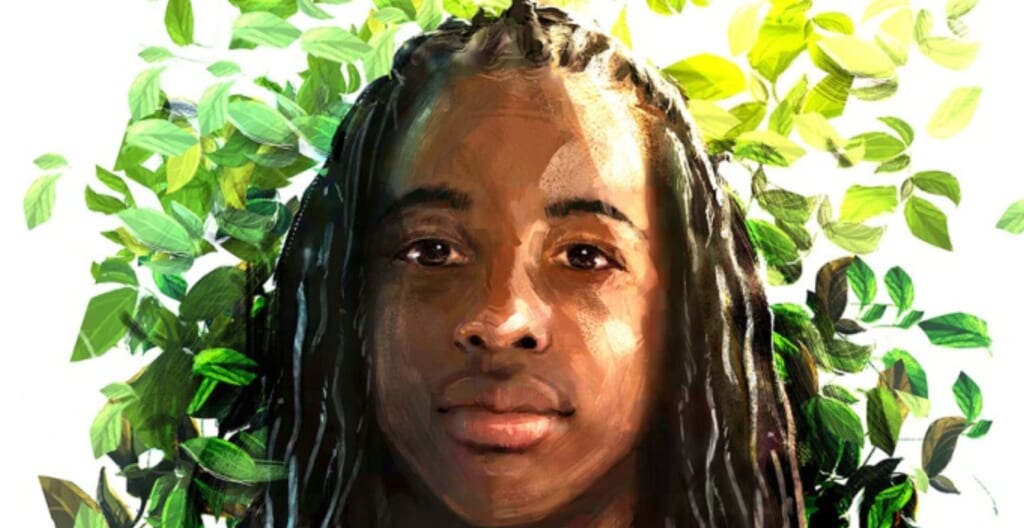‘Finding Kendrick Johnson’: A documentary for reopening the Kendrick Johnson case
Jenifer Lewis opened up about the film she executive produced and narrated on theGrio's 'Acting Up' podcast
Over the past few months, the news has been bombarded with the story of Long Island native, Gabby Petito, her disappearance, death, and the subsequent search for her fiancé, who has been the key person of interest in regards to her death. While attention on this case has been vast and immediate, the case of a 17-year-old high school student Kendrick Johnson was swept under the rug so severely, it required an independent filmmaker to create a documentary about it in order to keep it from disappearing from history.
Finding Kendrick Johnson follows the tragic story of a Black American family. Actually, no, that’s not accurate. The film speaks to a fear that ALL Black American families face; that one day, their child will walk out the front door for the very last time, all because someone felt their skin color made their life was expendable. A 17-year-old boy dies under mysterious circumstances in 2013, found rolled up inside of gym mat in his school and his family is not given the courtesy, empathy, and delicacy that any other white American family would receive if that were to happen to them.

Kendrick’s parents, Kenneth and Jackie Johnson, were forced to hire outside investigators to look into his death because law enforcement and surrounding agencies of the government were just callous, inefficient at best, or blatantly covering things up at worst. Why should parents have to result to protesting and handcuffing themselves to courthouse doors just to get justice for their child?
Now, the logistical negligence of the Valdosta, Georgia law enforcement, medical examiners, and Lowndes County sheriff’s department was overwhelmingly shocking. Ruling that Johnson’s death was accidental asphyxiation because he allegedly climbed into a gym mat to retrieve a shoe and get stuck without any physical evidence is one thing, but when the family had his body exhumed and hired Clinical Pathologist Dr. Williams R. Anderson to do a secondary forensic autopsy on Kendrick, that autopsy suggested otherwise.
Physical evidence in his lungs showed that he did not asphyxiate and his death was likely caused by non-accidental blunt force trauma to the head and neck, and let’s not forget to add that all his internal organs were removed and replaced with newspaper. Cased closed, right? Sadly, it wasn’t.
More evidence lead to two white brothers that knew Johnson from school. Brian and Branden Bell were named persons of interest enough to compel a federal search warrant on their home. This is when all the dominos should’ve fallen. However, The Bells’ father was an FBI agent. So you know where this story’s going without even reading the remainder of the article.

The documentary, narrated and executive produced by actress Jenifer Lewis, exposes the lack of thorough follow-through to lead to an arrest for Kendrick’s death but implicates facts that lead Kendrick’s family, Metro Police Homicide Detective and case whistleblower Mitch Credle, and others to believe that the ultimate dismissal of the case was due to cover-up on several levels.
“While the state of Georgia continues to cover up, even without evidence going viral worldwide, they covered this case up, y’all,” Lewis told theGrio during the podcast Acting Up. “The FBI stormed the Bell’s home. You know how much evidence the FBI has to have to storm somebody’s house with guns, AK-47s out? And then when they got in there and saw that it was an FBI agent, it was just pushed under the rug, just pushed under the rug. Another Black kid. So what?”
Not only that, but the film links Johnson’s death to not only the deep-rooted history of lynchings of Black youth in this country, such as Emmett Till, but also the repeated acts of covering up the incidents from the mainstream, like when 14-year-olds Ernest Green and Charlie Lang were lynched by a white mob in Mississippi after being falsely accused of assaulting a white girl in 1942.
When you see the ghastly, grotesque images of Kendrick’s bloated, disfigured face in the film
Another revelation from the film is the specific history of racially motivated violence that is historically tied to the city of Valdosta and Lowndes County. It was there in 1918 that a Black woman named Mary Turner was lynched for speaking out against, wait for it, her husband’s lynching. Eight months pregnant, a white mob tied her up, cut her baby out of her stomach so that it fell to the ground, killed the baby by stomping on its head, and then hung Mary.
Acting Up’s host, Cortney Wills, even brought up the fact that Ebony Magazine was sued for covering the Kendrick Johnson story because they implied the involvement of the Bell brothers in the reporting. So, cover-ups for the lynchings of Black youth are still a thing in 2021.
To bring it full circle, in September, Frank Somerville, an anchor on KTVU in California, was suspended indefinitely for wanting to cover “missing white woman syndrome” due to the overwhelming reporting of Gabby Petito and the underwhelming reporting of countless missing Black women, as reported by The World News.
When you see the ghastly, grotesque images of Kendrick’s, bloated, blood engorged and disfigured, that enough to make you angry. Knowing the Valdosta law enforcement, the FBI and the DOJ saw them, and the end result was that there wasn’t enough evidence to pursue the case further, it only further crystalizes that infamous James Baldwin quote, “To be a Negro in this country and to be relatively conscious is to be in a rage almost all the time. ”
Black Americans can be only one of two things; enraged or indifferent. The duality of being in a constant state of fury or being rendered utterly desensitized by America just being America again is emotionally taxing and spiritually exhausting.
With everything that the Black man and woman has accomplished, innovated and contributed to this planet, why do other races, particularly white Americans, think killing us for minor infractions or innocuous actions is no big deal? Well, the fact that the multi-tiered efforts to bury Kendrick’s life and story means that it’s a bigger deal than they make people think.
So, the culture of negating the deaths, disappearances, and murders of Black men, women, and youth in this country is far-reaching and as contemporary as ever. Lewis doesn’t want the same thing to happen to the Johnson family, which is why she took part in the documentary. She wants to make sure that people know the facts and use them to push to get the case reopened.
“You need to share and share and share and share the documentary. Let the people hear the facts,” Lewis said. “Don’t post it once, post it 10 times. Get it out there.”
Finding Kendrick Johnson was released in October and is available to stream on Prime Video.
Listen to the Finding Kendrick Johnson with Jenifer Lewis episode of Acting Up episode below.
Have you subscribed to the Grio podcasts, ‘Dear Culture’ or Acting Up? Download our newest episodes now!
TheGrio is now on Apple TV, Amazon Fire, and Roku. Download theGrio today!

